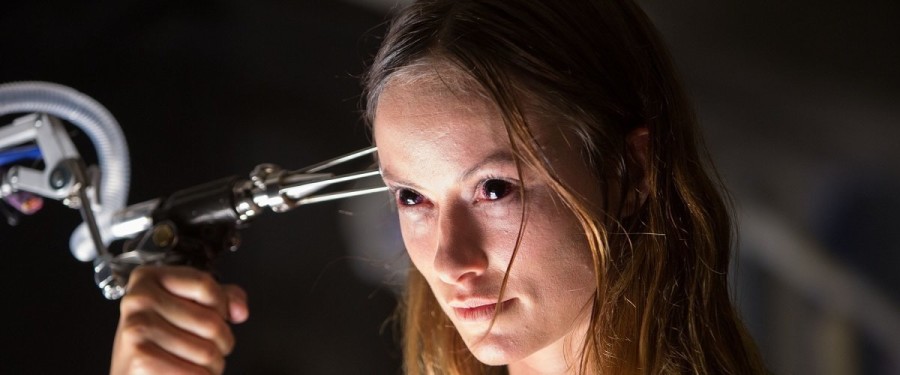Review: Lazarus Effect has an effective design, but is rough around the edges
Cheeky horror, not much else
Rated: PG13 – Horror – 89 mins – Studio: Relativity – Directed By: David Gelb
I walked out of The Lazarus Effect with a different perceived notion than when I entered, and that is the consequence of bringing those back from the dead. For starters, I actually did not hate this movie (so, if you’re looking for a hate review, check elsewhere). That being said, the film is still a bunch of mumbo-jumbo, boogie in the night frights, with a helping of sinister stupidity that makes you whirl your hands in the air, yelling at the incompetent fool sitting behind the sofa, who clearly should be running out the front door.
As usual, I digress.
The theories presented in The Lazarus Effect are seemingly intriguing for all the wrong reasons, and from the cool opening sequence, I could already fathom that this tale was not going to be like all the rest. It tells the story of a dark couple, Frank (Mark Duplass) and Zoe (Olivia Wilde), who are pursuing groundbreaking discoveries along with their research team (Evan Peters, Donald Glover) and Eva (Sarah Bolger), the girl documenting all the experiments. Frank, Zoe and Co. have created a serum that can restore brain function to deceased organisms, with the intent of providing new advancements in the care for trauma patients.
The first real breakthrough comes when the team is able to resurrect a dead dog, but as they begin to slowly discover, the dog that came back isn’t exactly the one that diminished. The big twist comes when the team’s data are forcibly seized by a large corporation, forcing Zoe and Frank to see the vitality of their work brought to exertion. Those snap decisions take a turn for the worst, and in light of that disaster, the team decides to do the unthinkable with the serum still in their possession. But of course, as with that decision, what comes back isn’t what left before.
This being the debut feature film of renowned documentary filmmaker, David Gelb, The Lazarus Effect takes a basic overdone plot and manages to make it creepy and fresh…mostly. I was decently enlisted to the film’s mangled threshold with its ability to stay creepy. And like a Saw movie, the set designer takes a nice approach in isolating the inevitable body count to one area, which in a sense, makes the audience feel a little more ‘on edge.’
For me though, the performance side of things is what keeps the movie compelling. While I had to be educated on Donald Glover’s rap history, he sludges by as a character we don’t really relate or connect to; in fact, if you have seen the film’s trailer, you already are familiar with his fatal demise (the decision to spoil that in a trailer is beside me). Mark Duplass steals most of the scene work as the compelling scientist determined to find answers at any means necessary. Equally, Wilde does prove to be a painstaking demon to reconcile with on screen. However, her tacky demonic presences only aided in my decision not to be invested even further. Towards the conclusion, the screenwriters try to evoke a last-second plot twist, which seems to fail on the punchline.
Evidently, I will never watch this movie again, not because I hated the flick, but because it’s forgettable. I was compelled enough to the point where my eyes were tranced in a gaze for more than ten minutes (which is more than I can say for most horror flicks nowadays), and that, to me, shows promise for the future.
Grade: B-










